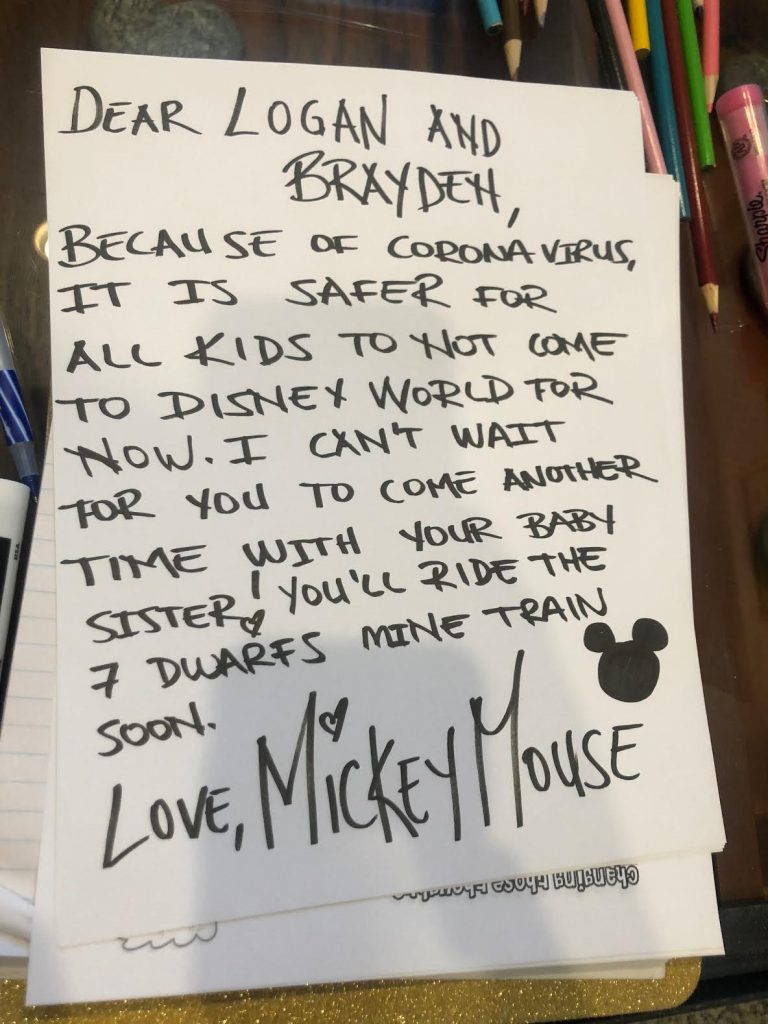
How to Speak to Children about COVID-19
In my practice, as a social worker, I work with children, adolescents and young adults on a daily basis. I also have children of my own. Recently, I have been asked multiple questions about COVID-19: How do we talk to children and adolescents about this pandemic? What should I be doing with my kids during the social distancing period?
Several themes arose from these conversations:
Notice our own feelings and reactions
We need to remember to notice our own feelings and reactions to this global issue so that we don’t transfer them on to our children. To be aware of own anxieties, reactions, stress about work, stocks, childcare, social media etc. We as parents are in a place of uncertainty and this is scary. However, if we don’t manage our own reactions, we will project them on to our children. For example, my own children had a countdown calendar for Disney World; they were beyond excited for our upcoming trip. Last week, we decided to cancel our trip. I was sad and disappointed as I too was looking forward to this nine day fully planned, action-packed trip with my family. My husband and I didn’t tell the children for a few days, as we needed to cope with our own sadness first, and discuss a plan on how to tell the children. We ended up writing a letter from “Mickey Mouse” to keep the magic alive and put it in the mailbox.
Self-care and family time
I often hear: I know that I need to engage in self-care, but there is no time! Now, due to social distancing, there is time. If parents engage in self-care, children will see and mimic this behaviour. They will therefore learn that self-care is important. Examples of self-care activities in the home are: yoga at home with the children, facemasks with (or without) the children, take a mindful “listening walk” pointing out sights and sounds along the way, try guided meditation alone or with the children (‘breethe’ or ‘headspace’ apps), try a body scan together at bedtime, having children read to one another, etc. During this social distancing period, it is important to instil new routines in the family so that structure and consistency remains in the home. Limiting social media exposure is a great importance as that can sometimes place added fear on to us as parents. Limit exposure to social media and focus on reputable sources such as the Centers for Disease Control and Prevention (CDC) website.
Circle of Control
To help with emotion regulation and anxiety, I incorporate the ‘Circle of Control’ into my sessions. I draw a circle and inside the circle, the child writes what they can control, and outside the circle, what they cannot control. For example, you can’t control the weather, but you can control what you wear for the weather. What is outside the circle is outside our control so we have no ability to change it. Therefore, it is helpful to ask ourselves, “can I control this right now?” if the answer is no, then “what can I control in this situation?” This method helps children, adolescents and adults, as constantly worrying about things that you can’t control can be frustrating and stress inducing. Using this strategy can help refocus our energy on things we can change. In our current situation, we can use this tool as a teaching method. We can’t control the pandemic, but we can control how we react to it. We can control hand washing and social distancing. Talking about hand washing and social distancing is also a great opportunity to teach children about our responsibility to other members of the community using a systemic approach.
What do I say to my children?

References: Gozen.com cdc.gov
By: Jessica Gottlieb MSW, T.S. West Island Therapy and Wellness Centre
